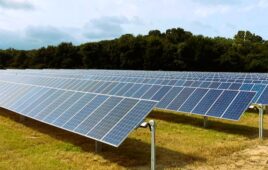By Samuel Adeyemo, co-founder and COO, Aurora Solar
If you have been selling residential solar for the past few years, you have probably been taught that uncovering a customer’s pain points is the key to closing the deal. Specifically, you have likely mastered the art of turning a homeowner’s sticker shock over their utility bills and fear of losing control over the cost of their electricity, into a case for going solar. It was a simple and effective tactic: all you had to do was convince the homeowner that solar would make the pain go away, and you would walk out with your signed contract in hand.
Solar buyers today are more savvy and more cost-conscious than ever before. “It has turned into a mature business” says Trevor Wright, Director of Sales at Semper Solaris, a SPW 2019 top 10 residential solar contractor. “For the most part [prospects] know what solar is, [and] you’ve got a much smarter buyer now. The low hanging fruit […] most of them have already bought.”
This is a new solar market, and the competition for customers is brutal. If you manage a large team of sales reps, things are even worse – because of high employee turnover and an increasingly competitive job market for the best reps, it’s a constant struggle to keep your team happy. This is one of the reasons why sales reps are among the hardest roles to fill in the solar industry.

Source: 2019 National Solar Jobs Census.
So what do you do if you are a successful closer who is looking to maintain your edge and elevate your solar sales to the next level in 2020? Or what if you are a sales leader, trying to grow your company from tens to hundreds of millions of dollars in revenue?
From my conversations with some of the most successful sales organizations in solar, to thrive in this environment, I suggest that you ditch a sales strategy based on buyer pain, and learn instead to adopt a strategy of TALC – Teach, Ask, Listen and, of course, Close your leads.




There isn’t much to differentiate so far as products are concerned, only differentiation could be the brand we buy or plan to.
Availability and or price could be the deciding factors as well.
What I feel, solar business for residential and small homes couldn’t be more attractive so far as margins are concerned.